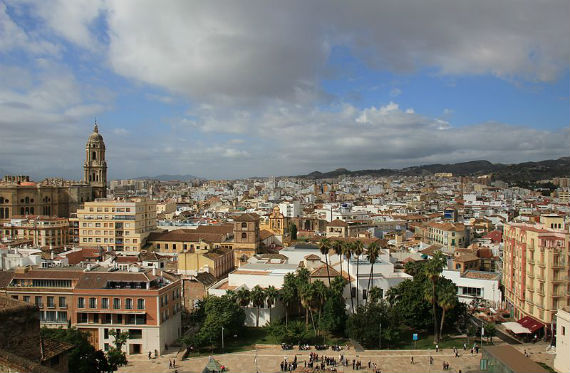Tourism numbers in Malaga, Spain, continue to grow in 2013. The latest data for the first five months of this year show an increase in overnight stays of 6.5 percent compared to the same period in 2012, with a total of 703 277. In June, the trend is likely to continue according to the Department of Tourism of the City, which also expects a rise of 3 percent during July and August.
The increase in overnight stays has been registered even though the number of visitors rose only by 0.18 percent up to 359,141, against the declines in Andalusia (-1.12 percent) and Spain as a whole (-2.83 per percent).
The Councilor for Tourism, Culture and Education, Damian Caneda, pointed out the “excellent performance” of the international market, especially Germany, France or the UK, which has offset the decline in domestic tourism, although this has decreased.
Domestic travelers who stayed in hotels amounted to over 36,000 (-1.9 percent), which represents 64,405 overnight stays. The number of foreigners grew up to 54,104 (+7.92 percent), exceeding 116,000 stays (+19.74 percent).
At this point, Caneda stressed the importance of these results because of the promotion being done by the Tourism Board in various destinations of the country. With respect to other parts of Spain, travelers have increased in Ceuta and Melilla (+12.9 percent), Murcia (+12.5 percent), Basque Country (+10 percent), and Valencia (+9.2 percent).
Regarding international markets Malaga welcomed greater number of visitors from Portugal (+48 percent), Sweden (+18.5 percent), Switzerland (+14.7 percent), and Russia (+ 9.9 percent). According to the councilor, besides continuing working in the same markets, they will focus on the emerging markets, especially in Russia and the Nordic countries, which also have greater spending power.
Caneda also talked about a challenge which seemed to be “impossible” for the city: to get an average of two-day stay. However, that goal has been accomplished this past May, with an average of 1.95 days for this year compared to 1.84 in the previous years.
“Malaga is the fastest growing urban destination in May, ahead of Barcelona, Seville, Cordoba, Granada, Valencia, Zaragoza, Bilbao, or Madrid,” he said.
The hotel occupancy in Malaga has also increased, one point reaching 57.62 percent in January-May. For Caneda, Malaga has to “win” the challenge of trade so that the city is also a shopping destination, which means generating economic activity. In this regard, he thanked the “growing” involvements by the traders, hoteliers, and restaurant owners to tourism in the town.


